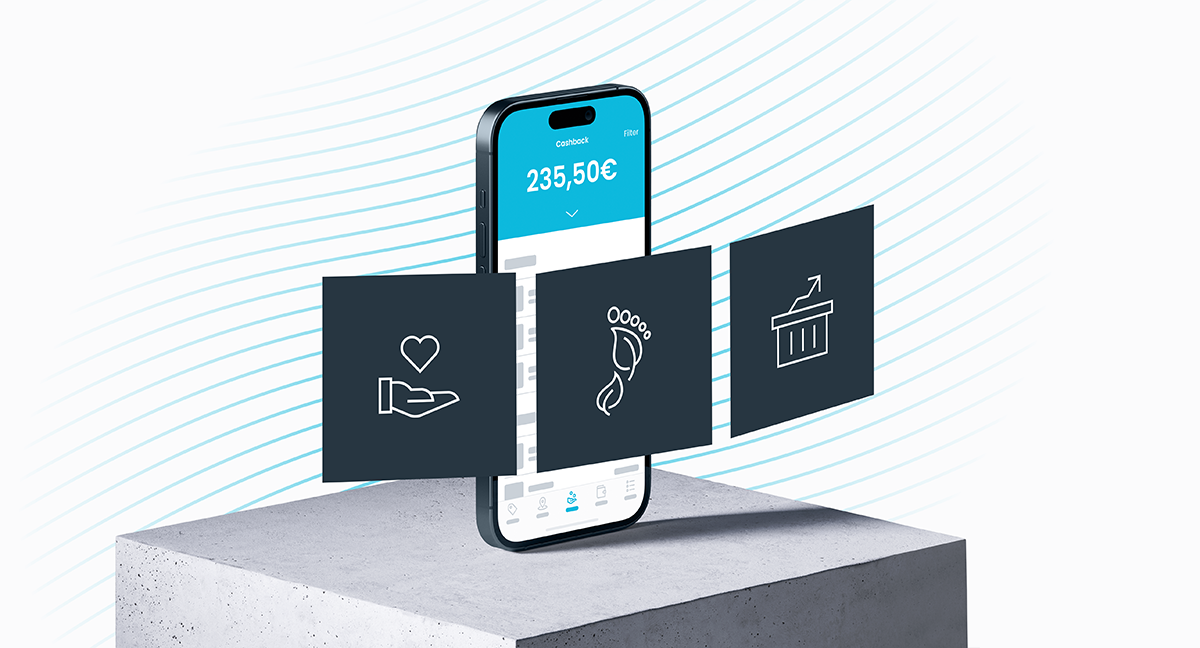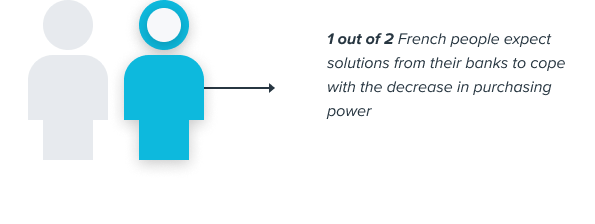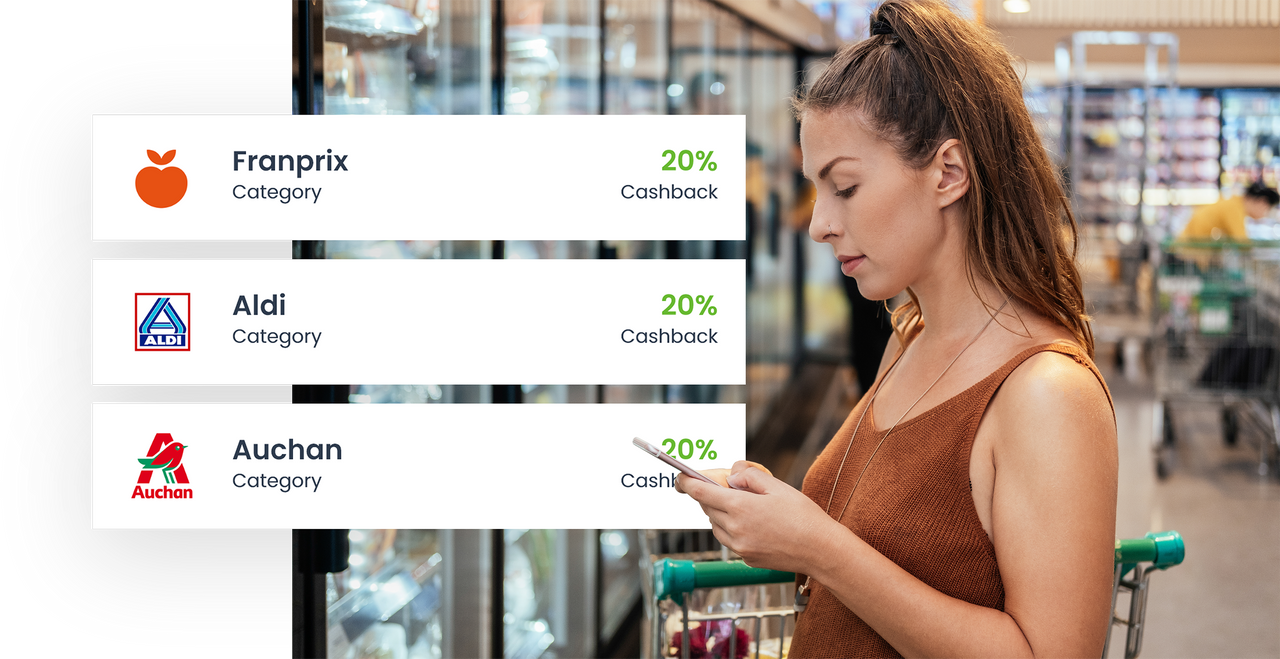
Banks need to leverage Open Banking to help all parties support CSR initiatives
Consumers are demanding more commitment from banks and corporations regarding sustainability. This echoes their desire to become personally involved in the causes they support.
However, several obstacles are holding back the altruism of consumers. In the current inflationary context, the decrease in purchasing power is the main barrier. However, banks can play their part in facilitating their clients' sustainability by leveraging open banking. With APIs built to exploit banking data, banks can create a mutually beneficial exchange that helps them and their customers contribute to causes they truly care for without reaching into their pockets.
An increasingly engaged and open ecosystem
The bank-consumer-merchant ecosystem is developing before our very eyes. Banks, merchants, and BNPL players want to make their mark by enhancing consumers' purchase journeys. Banking data is the cornerstone of this new ecosystem. The data is being leveraged via APIs to benefit all parties, whether it be funding cashback programs, making payments in several installments, personalizing marketplaces, or driving other services built to enhance the purchase experience.
Outside of purchase journeys, banking data and open banking APIs facilitate the exchange between stakeholders to support CSR initiatives aligned with consumer values. Initiatives like the fight against climate change, which consumers hold dear and expect companies to play their part in supporting. Climate change is such a pressing issue that a majority of people polled across 25 countries in an Ipsos study feel it's more important that businesses address this issue than pay the right amount of tax.
It's become abundantly clear that consumers want companies to be engaged. Not surprisingly, when looking at their behavior, there is increased involvement among Europeans who expect the same from the companies they bank with or purchase from. Most recently in 2021, 48% of the French made a donation to a cause, and as a whole, Europe remains one of the most generous continents in terms of individual donations worldwide.
While people are getting involved, they also recognize that it is not always easy. Hit first by the Covid-19 crisis and then by recent inflation, consumers' willingness to do their part clashes with their financial means. A difficulty that companies are fully aware of, which is all the more true for the most modest households. According to Oxfam Spain, inflation affects the purchasing power of Spanish families in precarious situations 30% more than the rest of the population. This story holds across Europe to varying degrees, with inflation eating into consumers' budgets across the continent. Alarm bells rang in January when inflation across Europe broke the 5 % mark. However, things have only gotten harder for consumers who grappled with inflation hitting 10.7 % in October.
In short, the purchasing power of consumers needs to be supported. For this, banks play a central role. Governments also recognize the role banks play. In some European countries such as France, recent obligations imposed by the government on banks ensured they can't raise fees by more than 2% next year and called on them to divide fees by three to protect vulnerable customers. Moreover, a recent onepoint and Harris interactive barometer indicates that 1 out of 2 French people expect solutions from their banks to cope with the decrease in purchasing power. The same expectations exist across Europe.

Banks recognize that consumers believe they should do more and that consumer issues are crucial to their CSR strategy. All that remains is finding the tools to carry out their ambitions. Hence, the benefits of open banking are all the more striking. Thanks to APIs facilitating data exchange within an open ecosystem, financial institutions, consumers, and retailers can mutually support social-environmental initiatives while enhancing purchase experiences.
Open banking for purchasing power and commitment
Increasingly, consumers say they are willing to give up more of their information if it means getting personalized solutions tailored to their needs. Quite simply, they want to consent to uses of data that serve a purpose. This is a boon for financial institutions, which can then leverage open banking to offer new products to their customers and activate a new lever in their CSR strategy by supporting their purchasing power and social-environmental efforts.
Consumer transaction data allows us to analyze purchasing behaviors and measure carbon footprints. With the exploitation of this data, available through banking APIs, it is also possible to set up a cashback solution. Cashback has become a new source of revenue for banks that they are more than willing to share to support customers. This has been a common practice for PayLead's banking partners since the company's launch. PayLead's technology ensures customers receive rewards for their purchases at major merchants such as Carrefour, Starbucks, or Uber via bank loyalty programs.

Implementing an automatic reward program allows banks to leverage their assets to benefit the consumer, who receives a simplified shopping experience. Directly integrated into the banking applications that customers consult daily, it's a turnkey solution that supports clients by generating automatic savings when using their payment card. This new two-sided ecosystem, made possible by the exchange of banking data, creates a virtuous circle between consumers, banks, and retailers. Consumers benefit from a frictionless shopping experience that reinforces their purchasing power, banks ensure their customers' loyalty by enriching their offer, and merchants broaden their customer base while building loyalty.
Reward programs don’t only support consumers monetarily but also encourage actions in line with personal commitments to causes. Various initiatives have been launched at this level. Some banks automatically calculate the carbon footprint of client purchases and allow them to compensate for this by donating to an association. Others allow customers to donate the cashback received from their purchases to an association or charitable cause.
This is the case of Ma French Bank, one of PayLead's banking partners. Since the launch of its premium account, customers could browse cashback offers within the bank application and use vouchers eligible at merchant partners. One of the other key features of the premium account is the solidarity component which proposes cards with specific commitments to two foundations: GoodPlanet (Green card) and Break Poverty (White card). With either card, customers can donate to the foundation of their choice directly from the banking application at any time by using cashback earnings. On top of that, the manufacturing costs of the cards are donated to the chosen foundation.
Many consumer-facing carbon footprint calculators are available to bank and fintech clients; however, the compensation element has either been missing or has put the onus on the consumer to donate their hard-earned money. With inflation burning a hole in everyone's pocket, cashback solutions allow bank clients to support their desired cause without making a financial contribution.
By putting the benefits of open banking to use in their CSR strategy, banks can effectively help their customers both in their daily lives and in their quest for meaning. By implementing solutions such as a reward program, consumers' purchasing power is directly supported. By going further, it is their social-environmental concerns that are prioritized and answered. Getting involved becomes easier for consumers when they can overcome the financial barrier. In the end, customer satisfaction is increased by giving them the means to do more in a frictionless manner at no personal cost.
Schedule a call and learn more about our automatic reward solution. Start increasing your customers' purchasing power while enriching their shopping experience. Schedule a call

